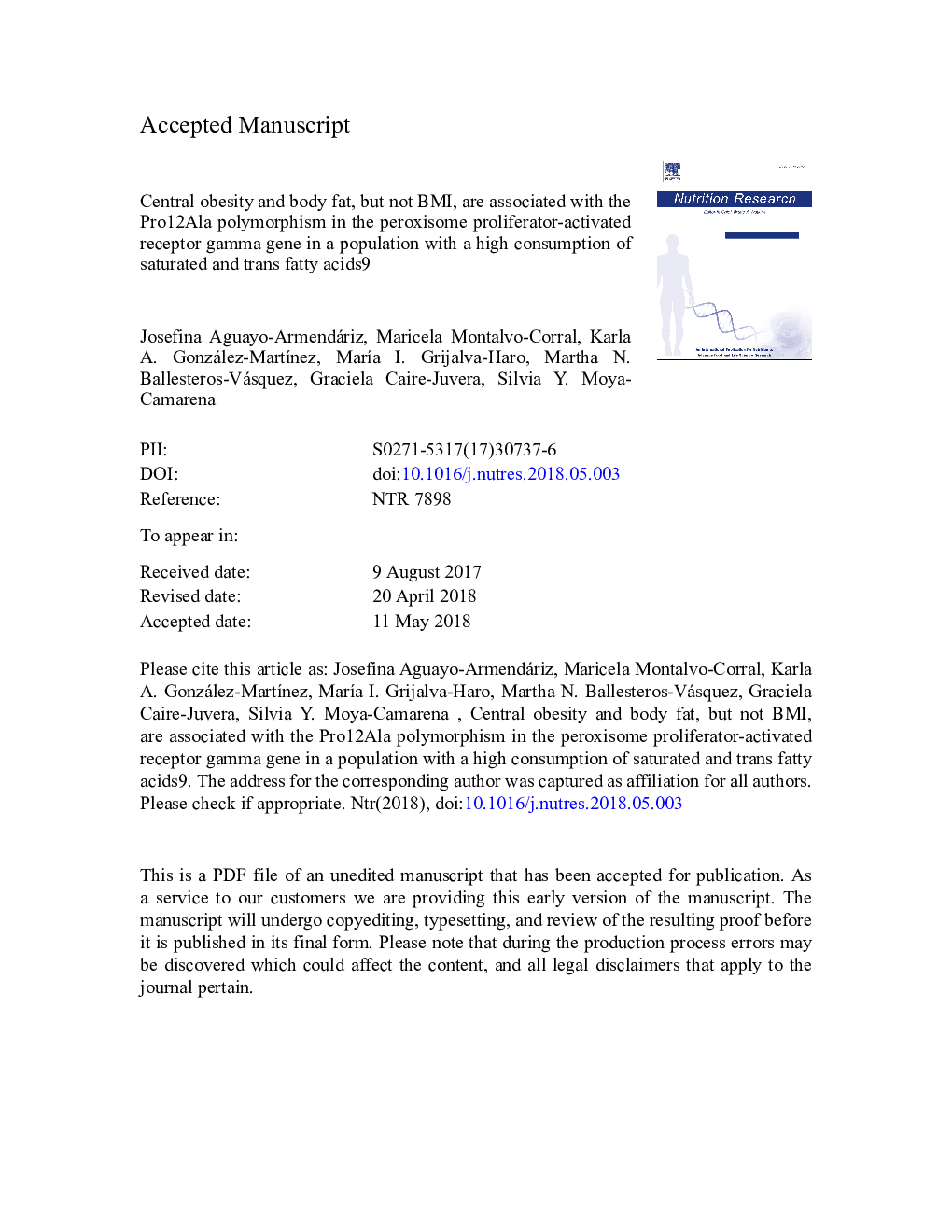| Article ID | Journal | Published Year | Pages | File Type |
|---|---|---|---|---|
| 8633959 | Nutrition Research | 2018 | 31 Pages |
Abstract
The relationship of the Pro12Ala polymorphism in the peroxisome proliferator-activated receptor γ (PPARγ) gene with obesity and its modulation by dietary fat has been proposed, but the few studies addressing this issue have yielded controversial results. In a Mexican population characterized by high-fat consumption, we hypothesized that the Pro12Ala PPARγ genotype is related to obesity and this relationship is modulated by intake of saturated fatty acids (SFAs) and trans-fatty acids (TFAs). We recruited 69 adults for this cross-sectional study. The Pro12Ala PPARγ polymorphism was determined from blood genomic DNA by using real-time polymerase chain reaction. Univariate and multivariate logistic regression analyses were performed. Pro12Ala showed a positive association with central obesity (adjusted odds ratio, 7.38; 95% confidence interval, 1.19-45.77; P = .032) and percentage of body fat (%BF; adjusted odds ratio, 1.08; 95% confidence interval, 1.00-1.17; P = .048), suggesting that Pro12Ala carriers are more likely to have central obesity and a higher %BF than Pro12Pro carriers. A modifying effect was observed for the SFAs strata: we found a significant association between the Pro12Ala polymorphism and %BF in the high-SFA-intake stratum (P < .04), but not in the low-intake stratum (P > .7). No modifying effect was observed for the TFAs strata. In addition, the impact of total energy intake on obesity in Pro12Ala carriers seemed to be stronger than that in the wild-type genotype carriers. As hypothesized, our data demonstrated a relationship between the Pro12Ala PPARγ polymorphism and the presence of obesity, which is modulated by SFA intake but not TFA intake.
Keywords
SFAPPAR γMUFAsWHRPUFAsPPARγTFAPALtrans-fatty acidsaturated fatty acidPolyunsaturated fatty acidsFatty acidsmonounsaturated fatty acidsHumansWorld Health OrganizationFood and Agriculture OrganizationPhysical activity levelbody mass indexBMIFAOconfidence intervalObesityCross-sectional studieswaist-to-hip ratioodds ratioBody fatDietary fatsGenotypeWHO
Related Topics
Life Sciences
Biochemistry, Genetics and Molecular Biology
Endocrinology
Authors
Josefina Aguayo-Armendáriz, Maricela Montalvo-Corral, Karla A. González-MartÃnez, MarÃa I. Grijalva-Haro, Martha N. Ballesteros-Vásquez, Graciela Caire-Juvera, Silvia Y. Moya-Camarena,
